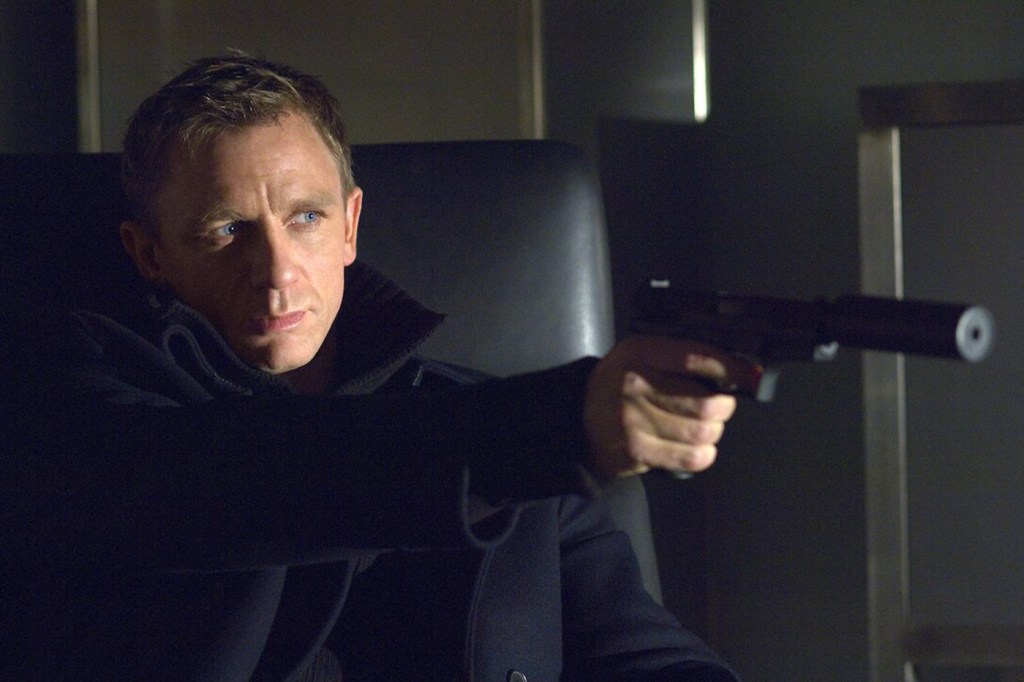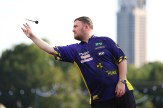Could James Bond lose the 007 name because of a trademark claim? A legal expert says it’s not that simple
An Austrian real estate developer is going head to head with the owners of the James Bond franchise in an attempt to use the 007 name and the super spy’s famous “Bond, James Bond” catchphrase.

His name is Bond, James Bond. But for how long?
The British super spy is at the center of a new trademark case that involves a Dubai-based resort developer’s claim that the owner of the James Bond IP is not using its trademarks, opening up the opportunity for another party to do so.
Austrian businessman Josef Kleindienst filed claims in the U.K. and Europe in an attempt to cancel those trademark registrations and, ultimately, use the character’s famous 007 moniker and catchphrase for a $5 billion resort project.
If these trademark claims are successful, does it mean Bond will lose his 007 status? Will the next iteration of the character not be able to utter his famous catchphrase?
Alexandra Roberts, a professor of law and media at Northeastern University who specializes in intellectual property, says Kleindienst could be successful in canceling those trademark registrations –– but it doesn’t mean much.
Kleindienst’s claims, commonly called “cancellation actions based on non-use,” are based on a foundational element of trademark law.
“In order to have trademark rights, you need to use something as a trademark in connection with specific goods and services,” Roberts says. “Then in order to keep those rights, you need to keep making that use.”
In the U.S. and U.K., if a trademark owner doesn’t use it commercially for at least five years, someone else can challenge a registration and revoke ownership of it. In this case, the challenge is against a broad range of uses, including, vehicles, software and accommodation. It also includes trademark protection of the catchphrase “Bond, James Bond” and the names James Bond, James Bond Special Agent 007 and James Bond 007 used in connection with those goods and services. The Bond trademarks are officially registered to Danjaq, which controls those rights with Eon, the production company that uses the character in films.
Editor’s Picks
Roberts says it’s entirely likely that Kleindiesnt could be successful in his cancellation claims. However, getting a trademark registration canceled is one thing; being able to use that trademark yourself is much more complicated.
Danjaq might not have a registration for hotel services, but if it has a trademark registered in a similar category, like restaurant services, Kleindienst could still be found liable for infringement, Roberts says.
Even more of a challenge is the concept of residual goodwill.
“Aunt Jemima and Uncle Ben’s announced that they were moving away from those trademarks,” Roberts says. “Immediately, five other people applied to register Aunt Jemima for pancakes and syrup. Usually, we would say consumers are still going to be confused by that. Even if this other brand isn’t technically using [a trademark] on syrup right now, there’s still this really strong association among consumers.”
This happens in entertainment too. Viacom sued the owner of the Krusty Krab, a restaurant named after the burger shop in “SpongeBob SquarePants.” The company succeeded because “they still were able to show that people are going to think this restaurant is sponsored by Viacom and has something to do with SpongeBob or is officially licensed by the owners of the SpongeBob copyrights and trademarks,” Roberts says.
Something similar would likely happen with anything related to a famous character like James Bond.
“The fact that we have Bubba Gump Shrimp, the fact that we have goods and services that license well-known trademarks that are related to entertainment franchises, trains consumers to expect there’s a relationship there,” Roberts says.
So, even if Kleindeinst succeed in canceling these trademarks, he could struggle to use them without stepping over the line to infringement.
“The James Bond entities have been somewhat litigious in the past, so they’re not going to take somebody else’s use lying down,” Roberts says.
As for how canceling those trademarks would impact the Bond franchise at large, you don’t need to worry about the next James Bond being 008.
“None of these things would have any effect on film or television or ability to license the character,” Roberts says. “Most of those are copyright related, and they wouldn’t have any effect on all the uses that they’re currently making.”











